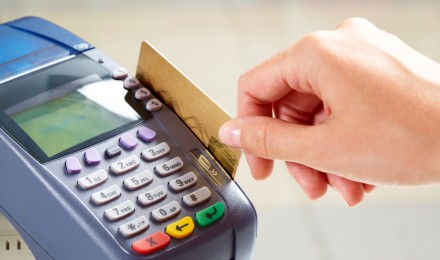As a parent you might toy with the idea of allowing your 9th grader or high schooler to have a credit card. Teenagers under the age of 18 cannot apply for a credit card. Thus, you would have to cosign the credit card application or add your child as an authorized user on your account.
There are definitely benefits to allowing your 9th grader to have a credit card. It takes credit to build credit, and if your child has a card in his name, this can jump start his credit history. He’ll have a credit score and an established credit history by the age of 18. With a credit history, he can apply for a car loan, a student loan and even rent an apartment on his own. While there are benefits to giving young teenager access to a credit card, there are also major risks.
Loss or Theft of the Credit Card
It’s important to set rules before giving your 9th grader a credit card. For example, you might prohibit your child from taking the card to school or showing the card to his friends. Regardless of whether your child is responsible, he can lose the credit card at school or leave the card at a friend’s house. One of his classmates or “so-called” friends can find or steal the card and run up the bill.
Instant Gratification
Putting a credit card in your 9th grader’s hands can give birth to some bad habits. Even if you give your child a monthly spending budget, the credit card lets him buy whatever he wants or whatever you allow. He may not work for these purchases, therefore, he may fail to grasp the value of a dollar. Granted, each child is different. However, easy access to credit and material possessions at a young age can give some teenagers a sense of entitlement.
Huge Credit Card Bills
Since teenagers under the age of 18 cannot apply for credit, they’re ultimately not responsible for charges incurred on their credit card. Your child may hold a card in his name. But at the end of the day, you are responsible for the account and any charges on the account. It doesn’t matter whether your child disobeyed and went over his spending limit. The credit card company wants its money and the company will hold you responsible for the balance until it’s paid off.
Deciding the Best Time to Give a Teenager a Credit Card
Some teenagers are more responsible than others, and the decision to give your 9th grader a credit card is a personal one. But before cosigning a credit application or adding your high schooler as an authorized user on one of your accounts, consider whether your child can handle credit. Questions to consider include: Can the child manage a savings account? How well does he manage his allowance? Is he a frivolous spender? Your answers to these questions can help you decide whether he’s ready for his own credit card.
As a parent you might toy with the idea of allowing your 9th grader or high schooler to have a credit card. Teenagers under the age of 18 cannot apply for a credit card. Thus, you would have to cosign the credit card application or add your child as an authorized user on your account.
There are definitely benefits to allowing your 9th grader to have a credit card. It takes credit to build credit, and if your child has a card in his name, this can jump start his credit history. He’ll have a credit score and an established credit history by the age of 18. With a credit history, he can apply for a car loan, a student loan and even rent an apartment on his own. While there are benefits to giving young teenager access to a credit card, there are also major risks.
Loss or Theft of the Credit Card
It’s important to set rules before giving your 9th grader a credit card. For example, you might prohibit your child from taking the card to school or showing the card to his friends. Regardless of whether your child is responsible, he can lose the credit card at school or leave the card at a friend’s house. One of his classmates or “so-called” friends can find or steal the card and run up the bill.
Instant Gratification
Putting a credit card in your 9th grader’s hands can give birth to some bad habits. Even if you give your child a monthly spending budget, the credit card lets him buy whatever he wants or whatever you allow. He may not work for these purchases, therefore, he may fail to grasp the value of a dollar. Granted, each child is different. However, easy access to credit and material possessions at a young age can give some teenagers a sense of entitlement.
Huge Credit Card Bills
Since teenagers under the age of 18 cannot apply for credit, they’re ultimately not responsible for charges incurred on their credit card. Your child may hold a card in his name. But at the end of the day, you are responsible for the account and any charges on the account. It doesn’t matter whether your child disobeyed and went over his spending limit. The credit card company wants its money and the company will hold you responsible for the balance until it’s paid off.
Deciding the Best Time to Give a Teenager a Credit Card
Some teenagers are more responsible than others, and the decision to give your 9th grader a credit card is a personal one. But before cosigning a credit application or adding your high schooler as an authorized user on one of your accounts, consider whether your child can handle credit. Questions to consider include: Can the child manage a savings account? How well does he manage his allowance? Is he a frivolous spender? Your answers to these questions can help you decide whether he’s ready for his own credit card.







